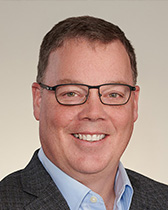Western Academic Leadership Forum Sidebar
Partnerships: Stronger Together
These are the meeting resources from the 2025 Academic Partnerships Annual Meeting which took place from April 23-25, 2025 in Reno, NV.
Preconference Workshop: Collaborative, Interdisciplinary Planning & Budgeting Practices to Build Capacity with the National Association of College and University Business Officers (NACUBO)
Collaborative resource planning is essential to build capacity, scale, and sustain institutional initiatives that drive outcomes. This session will share proven models and tools that can be leveraged to bring together finance and non-finance professionals and support interdisciplinary planning and budgeting activities. Attendees will gain access to a free suite of web-based resources at the NACUBO Student Success Hub and have the opportunity to discuss innovative ways of working, presented in a newly released Collaboration Toolkit. The toolkit and resources within were developed with input from a community of 26 colleges and universities through a multi-year grant initiative.
Terri Dautcher
Senior Consultant, NACUBO
Terri Dautcher
Senior Consultant, NACUBO
Terri Dautcher, MBA, currently serves as a senior consultant for NACUBO, working on a multi-year grant initiative to strengthen the connection between strategic finance practices and student outcomes. Dautcher was a member of the business faculty at Plymouth State University for nine years, after a 20-year corporate career in the Philadelphia region. She has an MBA from Temple University and has completed extensive professional development and graduate coursework in adult learning theory, organizational dynamics, and process management – practices that form a foundation to support the thought-partnership she offers to institutions and higher education professionals on a day-to-day basis.
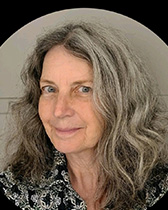
Sarah Bousman
Associate Vice President for Planning, Budget, and nalysis, University of Nevada, Reno
Sarah Bousman
Associate Vice President for Planning, Budget, and nalysis, University of Nevada, Reno
Sarah Bousman has served as the associate vice president for planning, budget, and analysis at the University of Nevada, Reno, since January 2023. She has been with Nevada System of Higher Education (NSHE) for more than twenty years. She first joined the Wolf Pack family as an international graduate student and earned her master’s degree in agricultural economics. After working in private industry as internal auditor, controller, and vice president of finance, Bousman came back to the University in 2004 as the director of finance for the University Studies Abroad Consortium (USAC). She then served as the budget director for the NSHE’s Desert Research Institute before returning to the University in 2018 as the chief financial officer in athletics and then became the budget director for the campus. Bousman is also a certified public accountant.
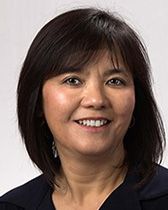
Keynote: Transforming Tomorrow: Strategic Partnerships for an Evolving Higher Education Landscape
In a time of continued transformation across education and workforce sectors, colleges and universities are increasingly called upon to collaborate in new and meaningful ways. Transforming Tomorrow: Strategic Partnerships for an Evolving Higher Education Landscape highlights how thoughtful partnerships—both within and beyond academia—can drive innovation, extend institutional capacity, and respond to the evolving needs of learners and communities.
In this keynote, Dr. Mordecai Brownlee will explore how strategic collaboration can unlock opportunities for program development, workforce alignment, and community engagement. Drawing from real-world examples and his leadership experience, Dr. Brownlee will outline practical strategies for building partnerships that foster student achievement, enhance institutional resilience, and support mission-centered growth.
Attendees will gain fresh insight into how purposeful alliances can help institutions remain agile, relevant, and responsive in a changing world—equipping them to shape the future of higher education with clarity and confidence.
Mordecai Ian Brownlee
WCET Executive Council, President, Community College of Aurora
Mordecai Ian Brownlee, Ph.D., is a dynamic and visionary leader transforming the landscape of higher education as the president of the Community College of Aurora (CCA). Under his leadership, CCA has reached historic milestones, including launching its first capital project in 24 years, achieving record-breaking fundraising, hiring the most diverse and accomplished faculty in its history, establishing a cutting-edge nursing program, and increasing student completions by more than 20%.
A nationally recognized voice in higher education, Brownlee is a sought-after speaker and a regular columnist for Diverse: Issues in Higher Education, where he addresses critical issues such as policy reform, leadership innovation, workforce development, and the urgent need for accessible and equity-driven education. His thought leadership and impact have earned him numerous accolades, including the prestigious NASPA “Pillar of the Profession” Award and the Paragon Award for New Presidents from Phi Theta Kappa (PTK).
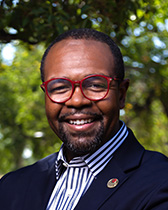
* Barbara Damron
WICHE Immediate Past Chair, Professor Emerita and Visiting Professor University of New Mexico College of Nursing, University of New Mexico
Barbara Damron *
WICHE Immediate Past Chair, Professor Emerita and Visiting Professor University of New Mexico College of Nursing, University of New Mexico
Barbara Damron is a Professor Emerita and Visiting Professor at the University of New Mexico College of Nursing. Prior to that, she served as the chief government relations officer for UNM. She was also New Mexico’s Cabinet Secretary of Higher Education for four years.
On the national level, Damron has been a National Academy of Medicine/Robert Wood Johnson Foundation Congressional Fellow in the United States Senate Committee on Health, Education, Labor & Pensions (HELP); an American Political Science Association Congressional Fellow in the United States Senate Committee on Health, Education, Labor & Pensions; a Congressional Fellow for Senator Lamar Alexander; Commissioner of the Western Interstate Commission for Higher Education (WICHE); Commissioner of the Education Commission of the States; and sits on the Board of Directors of Complete College America.
Damron’s long professional history spans over 45 years (26 in New Mexico), including being a leader in education, a healthcare executive, an advanced practice nurse, a college professor, an international consultant, and a cancer scientist. She has built positive and extensive relationships within the state’s higher education community, as well as within the legislative and executive branches. She has also worked alongside community and state leaders on the promotion of civic engagement and was featured as a panelist at the Hispanic Leadership Institute’s (USHLI) “Latinas in Politics” forum previously at UNM.
Damron received a Bachelor of Science in Nursing from Union College in Lincoln, Nebraska, a Master of Science in Nursing from the University of Texas Health Science Center at San Antonio, and a doctorate in educational psychology from the University of Texas at Austin.
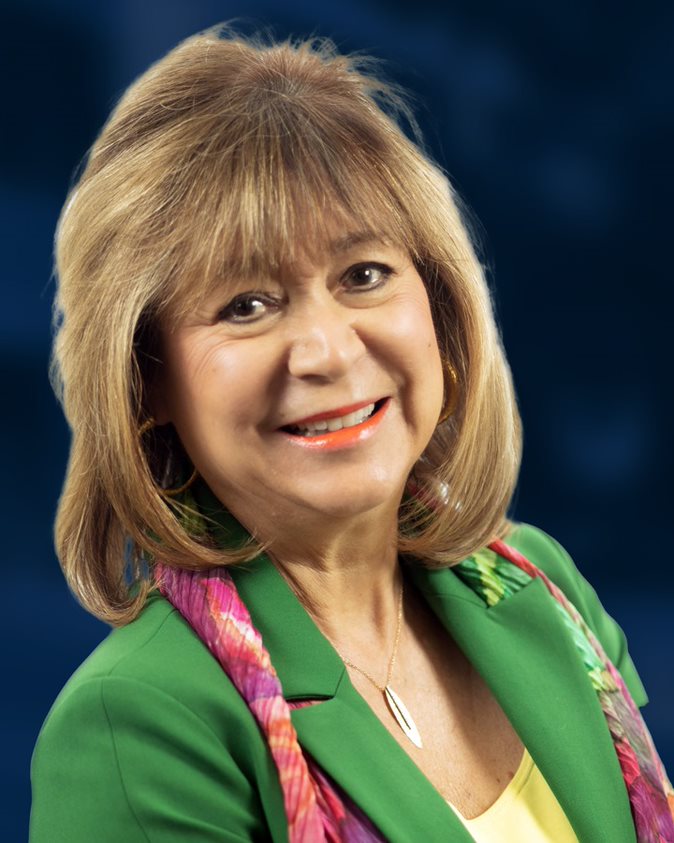
Don’t Fear the Big Blur: New Partnerships and Credentials for Beneficial Outcomes
BAS Degrees at community colleges? Workforce certification at a university? Dual enrollment? The lines in higher education have never been blurrier. Join this panel of community college and university leaders to discuss how their institutions are coloring outside the lines to serve their students, communities, and workforce needs with new and innovative relationships and credentials.
Kaylyn Bondy
Vice President for Student Affairs, Bismarck State College
Kaylyn Bondy
Vice President for Student Affairs, Bismarck State College
Kaylyn Bondy, Ph.D., has served as the vice president for student affairs at Bismarck State College since 2020. Previously, she served Williston State College as vice president for student affairs from 2015-2020 and as registrar/director for institutional research & effectiveness from 2011-2015. She has taught as adjunct faculty and for other organizations. Bondy earned a B.A. in French from the University of North Dakota (UND), a master’s in international business from l’Institut d’Administration des Entreprises à Caen, an M.B.A. from the University of St. Thomas, and a Ph.D. in higher education from UND. She was also selected as an Aspen Presidential Fellow in 2020-2021.
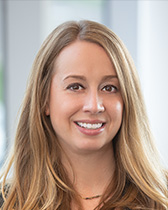
Kari Brown-Herbst
Senior Vice President of Academic Affairs, Laramie County Community College
Kari Brown-Herbst
Senior Vice President of Academic Affairs, Laramie County Community College
Kari Brown-Herbst is the senior vice president of academic affairs at Laramie County Community College (LCCC) in Cheyenne, Wyoming. As the college’s chief academic officer, Brown-Herbst provides executive oversight and strategic guidance in the planning, development, and implementation of all aspects of academic programming as well as instructional support services. Brown-Herbst serves on the AACC Commission on Structured Pathways and serves the Higher Learning Commission as a member of the Peer Review Corps as well as a member of their Institutional Actions Council. Regionally, Brown-Herbst represents Wyoming’s community colleges on WICHE’s Alliance executive committee. She received an Ed.D. in instructional technology from the University of Wyoming, her master’s in education technology from Marian University (Wisconsin) and her bachelor’s in sociology with an education endorsement from Kalamazoo College (Michigan).
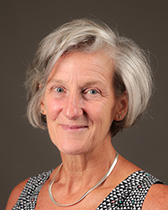
Denise Runge
Provost and Executive Vice Chancellor for academic affairs, University of Alaska Anchorage
Denise Runge
Provost and Executive Vice Chancellor for academic affairs, University of Alaska Anchorage
Denise Runge, Ph.D., has served as provost and executive vice chancellor for academic affairs at the University of Alaska Anchorage since 2020. She leads programming across five campuses and collaborates closely with the other campuses in the Alaska system. Previously, she held similar positions in Montana and Georgia. Denise received her B.A. in political science from Washington and Jefferson College, an M.A. from Jacksonville State University, and Ph.D. in policy and administration from the University of Alabama.
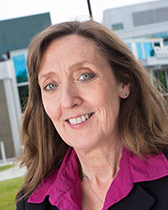
Brenda Sipe
Associate Vice President of Business & Educational Partnerships, Northern Arizona University
Brenda Sipe
Associate Vice President of Business & Educational Partnerships, Northern Arizona University
Brenda Sipe, Ed.D., serves as the associate vice president of business & educational partnerships at Northern Arizona University and has 24 years of experience in higher education and workforce development. In addition to her leadership roles, she taught courses at several colleges and universities and published articles on the topics of student success, organizational culture, and innovation, including a chapter “Innovation in Challenging Times” in Enhancing Performance: A Best Practices Guide for Innovations in Community Colleges. Sipe earned an Ed.D. in community college leadership from Ferris State University and was the founding director of continuing education at Northern Arizona University (NAU). Sipe is passionate about access and success for adult learners through workforce development.
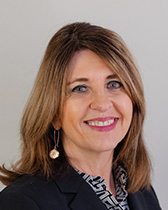
Transfer Student Success: Embracing the Hot Potato of Statewide Collaboration to Produce Transformative Change
This interactive presentation brings together Idaho state education policy leaders and Idaho community college academic leaders to describe innovative approaches for streamlining transfer pathways in higher education. Drawing on Kezar’s theoretical framework of sensemaking and sensegiving in institutional transformation, presenters will demonstrate how cross-state institutional collaboration drives sustainable change in better supporting transfer students. By examining transfer reform through both systemic and institutional lenses, this session illustrates how theoretical understanding of change processes combine with practical implementation to create meaningful impact.
Heidi Estrem
Chief Academic Officer, Idaho State Board of Education
Heidi Estrem
Chief Academic Officer, Idaho State Board of Education
Heidi Estrem, Ph.D., serves as the chief academic officer at the Idaho State Board of Education. She advocates for higher education, leads sustainable and supportive policy implementation, and supports students and faculty at Idaho’s eight public institutions. Prior to joining the Board office, she was the director of first-year writing and professor of writing studies at Boise State University. Estrem received her B.A. in English from California State University, Chico, and her M.A. and Ph.D. in composition and rhetoric from the University of Nevada, Reno.
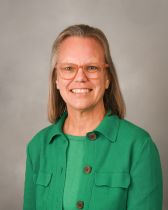
Angela Sackett
Vice President, Academic & Student Affairs, College of Eastern Idaho
Angela Sackett
Vice President, Academic & Student Affairs, College of Eastern Idaho
Angela Sackett, D.C. has served as the Vice President of Academics and Student Affairs at the College of Eastern Idaho since 2024. She works to provide excellent programming and student support systems that create opportunities for students as they work towards completing their education. Sackett has held various positions at the College of Eastern Idaho to include: adjunct and full-time faculty, inaugural science and math department chair, and dean for general education, and dean of health sciences. She received her Doctor of Chiropractic Degree from Cleveland Chiropractic College, a B.S. from Idaho State University and an A.S. from BYU-I.
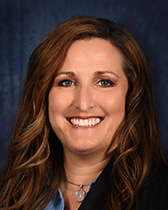
Tiffany Seeley-Case
Vice President of Instruction, College of Southern Idaho
Tiffany Seeley-Case
Vice President of Instruction, College of Southern Idaho
Tiffany Seeley-Case is the vice president of instruction at the College of Southern Idaho. Before assuming this position in May of 2024, she served as the dean of general and transfer education at CSI. She has held several positions at CSI over the last 27 years where she started as an instructor teaching and coaching the speech and debate team. Seeley-Case received her B.A. in communication/English from Boise State University and her M.A. from Boise State University in curriculum and instruction and is currently completing her doctoral degree from Idaho State University in educational leadership.
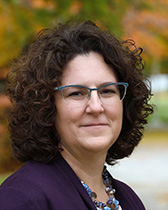
Justin Vance
Dean, School of Arts and Humanities, College of Western Idaho
Justin Vance
Dean, School of Arts and Humanities, College of Western Idaho
Justin Vance, Ed.D., serves as dean at the school of arts and humanities at College of Western Idaho (CWI). He earned a B.A. at Boise State University, an M.A. in diplomacy from Hawai‘i Pacific University, and an Ed.D. from the University of Southern California. Before coming to CWI, he served as dean of the college of professional studies and associate professor of history at Hawai’i Pacific University. Vance has a passion for helping students from all different backgrounds and levels of preparation reach their educational and professional goals. During his 20+ years working in higher education, he has a consistent record of embracing innovation to meet student needs and institutional goals.
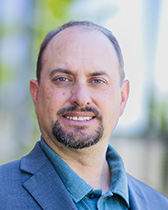
No One Builds a Good Credit for Prior Learning Program Alone
Over the past 4 years, Salt Lake Community College has worked to create a robust, centralized Credit for Prior Learning (CPL) office to serve their students. This has required extensive partnerships, coordination, and collaboration across the institution, as well as patience and understanding as they navigated the highs and lows of building those partnerships.
Kiesha Fehoko
Director of Testing Services, Salt Lake Community College
Kiesha Fehoko
Director of Testing Services, Salt Lake Community College
Kiesha Fehoko has worked in testing services at Salt Lake Community College for 21 years. She has served as their director since 2019. She works with students, academic departments, and student affairs to ensure exam integrity, security, and accessibility. In addition, she collaborates with workforce partners and vendors to provide licensure and certification exams. Fehoko is a licensed clinical social worker and received her BSW and MSW from the University of Utah.
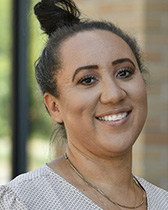
Andrea Tipton
Director of Credit for Prior Learning, Salt Lake Community College
Andrea Tipton
Director of Credit for Prior Learning, Salt Lake Community College
Andrea Tipton has served as the director of credit for prior learning at Salt Lake Community College (SLCC) since January 2023. She works with students, institutional partners, state-wide collaborators, and nationwide connections to improve access to and increase opportunities for credit for prior learning, or prior learning assessment. Previously, she served as the curriculum coordinator for SLCC, where she worked with faculty and departments on curriculum revisions, additions, and removals. Tipton received her B.S. in biology and M.A. in teaching from Lee University.
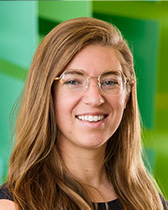
From Pathways to Highways: The 2NAU Foundation for Growing Postsecondary Attainment
Increasing postsecondary attainment and contributing to regional workforce needs demands partnership between community colleges and universities. Northern Arizona University’s collaboration with Arizona’s community colleges through the 2NAU model offers a proven roadmap to maximizing affordability, removing academic obstacles, and collaboratively supporting students. They are further demonstrating expanded partnership models through a Universal Admissions program.
Lauren Copeland-Glan
Director, Office of Economic Mobility and Social Impact, Northern Arizona University
Lauren Copeland-Glan
Director, Office of Economic Mobility and Social Impact, Northern Arizona University
Lauren Copeland-Glenn is a delivery lead and director in the office of economic mobility and social impact at Northern Arizona University (NAU) where she leads two A++ program initiative teams. Copeland-Glenn brings 17 years of higher education experience in various areas to her role. She has worked with teams from across campus to design and implement programs and structures to solve issues facing the institution. She is a co-chair of the NAU Commission on Disability Access and Design and chair of the Campus Inclusion Team. Copeland-Glenn earned her associate degree in anthropology from Coconino Community College and bachelor’s and master’s degrees in cultural anthropology from NAU.
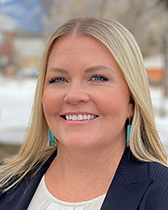
John Georgas
Senior Vice Provost for Academic Operations, Northern Arizona University
John Georgas
Senior Vice Provost for Academic Operations, Northern Arizona University
John Georgas, Ph.D., has served as the senior vice provost for academic operations at Northern Arizona University since 2020. In this role, he collaborates across a broad portfolio of offices and areas, including academic advising, office of the registrar, academic policies, and undergraduate research. His scholarly interests include software and architectural visualization, self-adaptive software systems, domain-specific architecture and architectural styles, and software engineering pedagogy and learning. Georgas earned his bachelor’s degree in computer science from California State Polytechnic University, Pomona, and his master’s and doctoral degrees in information and computer science from the University of California, Irvine.
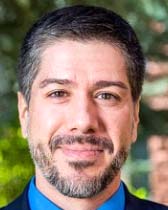
Terri Hayes
Associate Vice President for Academic Retention, Momentum, and Success, Northern Arizona University
Terri Hayes
Associate Vice President for Academic Retention, Momentum, and Success, Northern Arizona University
Terri Hayes currently serves as an associate vice president for academic retention, momentum, and success at Northern Arizona University (NAU). She holds a Bachelor of Arts degree from the University of Arizona and an MBA from Northern Arizona University. Hayes’ various professional roles at NAU have been centered around enhancing services to students attending online, statewide, and in Flagstaff. Her current responsibilities include oversight of the academic advising enterprise.
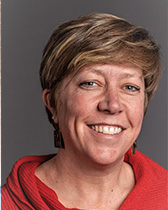
Adult Education/Title II Pathways to Economic Mobility and Sector-Based Training
This session will highlight the innovative work being produced through the Good Jobs Northern Nevada initiative across adult education, community college, and workforce system partners. The panel will discuss the evolution of adult education: Integrated Education and Training (IET) models to serve adult learners and Tribal communities across the 70,000 square mile service area in northern Nevada.
Arianna Florence
Assistant State Director, Nevada Department of Education
Arianna Florence
Assistant State Director, Nevada Department of Education
Arianna Florence has been with the Nevada Department of Education, Office of Adult Education, since 2015, and now serves as the adult education and family literacy act (AEFLA) assistant state director. She works closely with the adult education state director in all aspects of carrying out the grant. She came to adult education from the Department of Employment, Training, and Rehabilitation where she worked in various divisions for over five years.
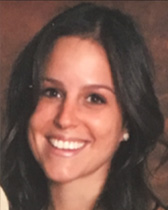
Alex Harris
Adult Basic Education Director, Truckee Meadows Community College
Alex Harris
Adult Basic Education Director, Truckee Meadows Community College
Alex Harris is the adult basic education director at Truckee Meadows Community College, a role he began in June 2024. Harris oversees adult education programs, focusing on enhancing access and improving student outcomes. Prior to this, Harris served as the state director for adult education at the Iowa Department of Education from 2012 to 2022 and worked as a transition coordinator at Eastern Iowa Community College from 2010 to 2012. Harris also has experience as a deputy executive director for adult education at the Alabama Community College System. Harris holds a B.A. in business administration from Western Illinois University and an MPA from the University of Missouri-Columbia.
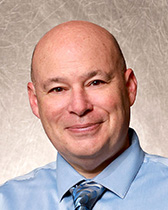
Angela Holt
Director of College & Career Readiness, Western Nevada College
Angela Holt
Director of College & Career Readiness, Western Nevada College
Angela Holt is the director of college & career readiness and high school equivalency chief examiner at Western Nevada College and is responsible for overseeing AEFLA adult education programs, career & employer services, and the learning experience & success departments. Previously, she spent six years teaching English language learning and high school equivalency preparation. Holt earned her certified public manager credential, received the MPAEA Award of Excellence for teaching, and participated in the Chamber Leadership Class of 2019. She holds a master’s certificate in educational leadership and a Bachelor of Arts in English Language and Linguistics.
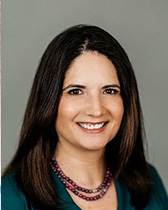
Milt Stewart
CEO, Nevadaworks
Milt Stewart
CEO, Nevadaworks
Milt Stewart serves as the CEO for Nevadaworks, northern Nevada’s local workforce development board. Stewart has been with Nevadaworks for over eight years and has a comprehensive understanding of the workforce development needs throughout its thirteen-county service area. Before his arrival at Nevadaworks, Stewart was a partner in a small business for over 20 years. Under Stewart’s leadership, Nevadaworks was awarded a Good Jobs Challenge grant from the US Department of Commerce Economic Development Administration, branded as the Good Jobs Northern Nevada project, which allowed Nevadaworks to expand its role within the workforce system in northern Nevada to increase access for historically marginalized populations including remote rural and Tribal communities.
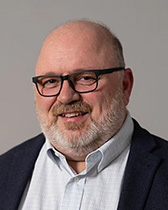
Alexandria Wright
Senior Research Associate for Economic, Labor Market, & Educational Data, WestEd
Alexandria Wright
Senior Research Associate for Economic, Labor Market, & Educational Data, WestEd
Alexandria Wright, Ph.D., is a senior research associate for economic, labor market, & educational data at WestEd, and serves as the principal investigator for the Good Jobs Northern Nevada initiative. She specializes in strategic planning to build strong economies in rural America and American Indian Nations, bridging postsecondary education with regional economic conditions. She has served as director for economic and workforce development divisions at three community college districts. Wright currently serves as adjunct faculty in economics at Cal Lutheran University and applied indigenous studies at Northern Arizona University. She holds an extended B.S. in economics, a M.A. in public policy, and a Ph.D. from the School of Politics & International Affairs at Northern Arizona University.

Building an Emerging Leaders Pipeline to Strengthen Institutional Values, Bridge Silos, and Build Partnerships
This panel discussion with leaders at various levels at Colorado State University Pueblo (Provost, Dean, and “emerging leader”) will explore the benefits of developing an in-house leadership program to identify and bring together campus leaders, to promote connections, and to break down traditional disciplinary barriers at the institution while encouraging partnerships.
Victor Baeza
Associate Professor, Colorado State University Pueblo
Victor Baeza
Associate Professor, Colorado State University Pueblo
Victor Baeza is an associate professor and the scholarly communication librarian for Colorado State University Pueblo where he provides leadership in the areas of copyright, open educational resources (OER), and citation management. He has 27 years of experience in designing, directing and delivering workshops, training sessions, and seminars to the academic community, including experience coordinating leadership institutes for various state and regional library associations. Baeza has a B.S. in communication from Eastern New Mexico University, a Master of Library Science from the University of North Texas College of Information and Library Science, and received his MBA from Texas Christian University.
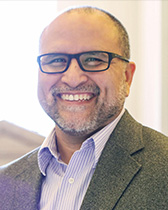
Michelle DenBeste
Special Assistant to the Vice President for Advancement, Central Washington University
Michelle DenBeste
Special Assistant to the Vice President for Advancement, Central Washington University
Michelle DenBeste, Ph.D., is currently serving as interim dean of the Hasan College of Business at Colorado State University Pueblo. In July, she will begin a position at Eastern Washington University as dean of the College of Arts, Humanities and Social Sciences. She has previously served as provost at Central Washington University and as dean at Fresno State University. Prior to becoming an administrator, DenBeste taught Russian and European history at Arkansas Tech University and California State University, Fresno. DenBeste has a B.A. in Russian and east European studies from the University of Washington, Seattle, and an M.A. and Ph.D in history from Southern Illinois University.
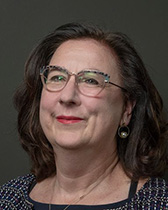
Gail Mackin
Provost, Colorado State University Pueblo
Gail Mackin
Provost, Colorado State University Pueblo
Gail Mackin, Ph.D., is the provost at Colorado State University Pueblo, where she leads strategic planning, budgeting, faculty development, and student success initiatives. Previously, she served as vice provost at Central Washington University, where she also held interim dean roles for the College of Education & Professional Studies and the School of Graduate Studies and Research. Mackin spent 16 years as a faculty member at Northern Kentucky University, where she taught mathematics, mentored undergraduate researchers, and led NSF-funded STEM initiatives. She received a B.S. in mathematics and physics from Keene State College and an M.S. and Ph.D. in mathematics from Virginia Tech.
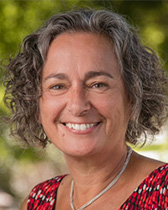
A College-Wide Collaborative Course Scheduling Solution
Salt Lake Community College’s (SLCC) class schedule is where their college most concretely realizes its promise of access to students. Being able to create and deliver an institution wide course schedule that meets the needs of your students, your academic programs, and your faculty members can be a challenging proposition. SLCC has created a collegewide strategic scheduling committee comprised of stakeholders across the college to collectively seek out and address ways that they can continually refine their schedule, as well as their internal scheduling processes, to ensure they are meeting the needs of the community they serve.
David Brower
Director of Scheduling, Salt Lake Community College
David Brower
Director of Scheduling, Salt Lake Community College
David Brower has been leading a strategic scheduling initiative as director of scheduling at Salt Lake Community College since 2022. He works collaboratively with stakeholders across the college, delivering on the institution’s mission of access by crafting a scheduling process that produces a dynamic course schedule meant to meet student need and lead to timely completion. Throughout his two decades in higher education, he has held leadership roles in site administration, staff development, and curriculum management. Brower received his B.S. in political science from the University of Utah and an M.S. in management and leadership from Western Governors University.
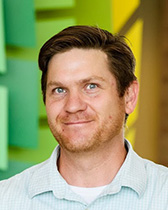
Tom Hanson
Associate Professor of Psychology, Salt Lake Community College
Tom Hanson
Associate Professor of Psychology, Salt Lake Community College
Tom Hanson is an associate professor of psychology at Salt Lake Community College (SLCC) in Utah. During his tenure at SLCC, Hanson has taught a variety of introductory psychology courses within different modalities. Additionally, he has served as associate dean for social and behavioral sciences, as well as department chair for psychology and ethnic studies. Prior to joining SLCC in 2015, Hanson was a psychology instructor at Gateway Technical College in Wisconsin, as well as a middle school teacher in Arizona through the Teach for America program.
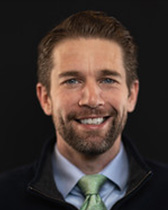
Establishing Cross-Campus Course Sharing
The University of Hawai‘i and University of Montana systems are at different stages of building curricular flexibility between their campuses. This session will discuss the challenges of making cross-campus course sharing a reality and the numerous administrative hurdles that must be overcome to make it possible. However, enabling cross-campus course sharing can provide numerous benefits for students and faculty including allowing for rural students to access programming not provided at their campus, ease transfer issues, and allow for underenrolled courses to reach a larger audience of students.
Debora Halbert
Associate Vice President for Academic Strategy, University of Hawai‘i System
Debora Halbert
Associate Vice President for Academic Strategy, University of Hawai‘i System
Debora Halbert is the associate vice president for academic strategy at the University of Hawai‘i System where she works on student success and transfer related issues. Prior to her current position, she was the associate vice chancellor for academic affairs at the University of Hawai‘i at Mānoa. She received her B.A. and M.A. from Western Washington University and her Ph.D. in political science from the University of Hawai‘i at Mānoa. Prior to returning to Hawai‘i where she was a professor in the political science department teaching law, policy and also futures studies, she taught for 12 years at Otterbein University in Westerville, Ohio.
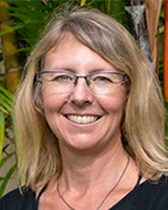
Joe Thiel
Interim Deputy Commissioner for Academic, Research and Student affairs, Montana University System
Joe Thiel
Interim Deputy Commissioner for Academic, Research and Student affairs, Montana University System
Joe Thiel serves as interim deputy commissioner for academic, research and student affairs for the Montana University System. The Montana University System comprises 16 institutions that together serve more than 40,000 students. Thiel holds a B.S. in chemical engineering and a B.A. in liberal studies from Montana State University and master’s degrees in public policy and higher education from the University of Oxford, which he attended as a Rhodes Scholar.

Insights from the Knocking on the College Door Demographics Report
In December 2024, WICHE released the 11th edition of Knocking at the College Door: Projections of High School Graduates, offering updated high school graduate projections. The demographic trends facing colleges and universities—nationally and in the West—are critical for institutional planning. Future cohorts of students may not resemble those of the past, and colleges must adapt with innovative support services and engaging programming.
- How could understanding high school graduation projections inform your institution’s strategic plan?
- How can you proactively respond to this demographic inflection point to position your institution for success?
Patrick Lane
Vice President, Policy Analysis and Research
Patrick Lane is the Vice President of WICHE’s Policy Analysis and Research unit. In this role, he oversees a range of work focused on improving access to and excellence in postsecondary education through sound public policy and research. This portfolio of work includes efforts to improve the value of postsecondary education, address students’ behavioral health needs, increase affordability, and ensure robust regional collaboration. He previously was WICHE’s director of data initiatives leading efforts to improve linkages between state data systems. Prior to this role, he coordinated WICHE’s efforts on adult learners and improving postsecondary access for low-income students. He came to WICHE after spending several years working in education policy in the Republic of the Marshall Islands. Lane completed a doctorate in public affairs at the University of Colorado Denver in 2015.
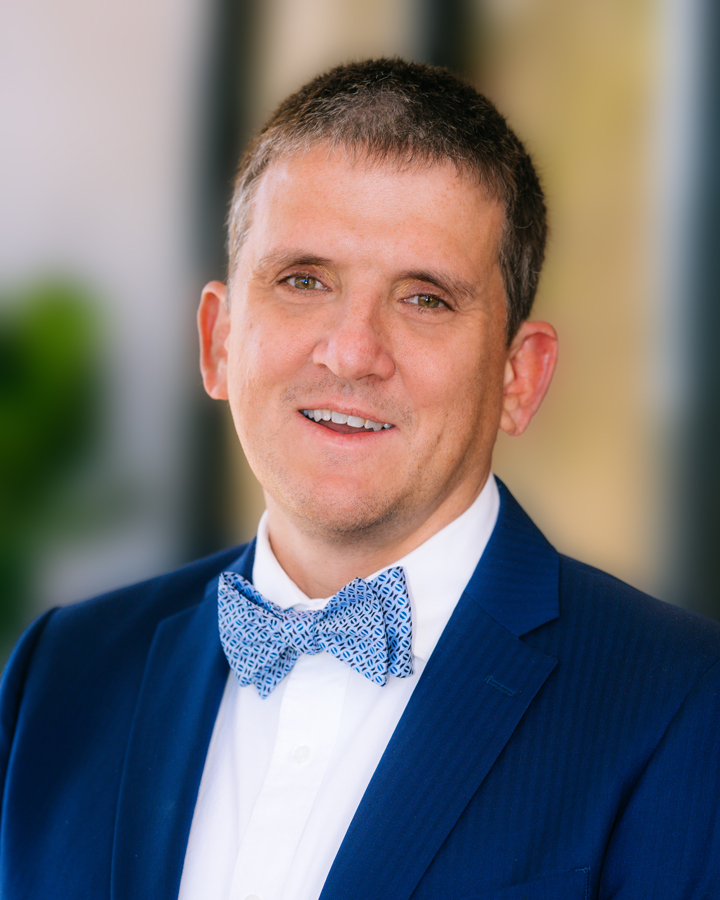
The Latest Research on Community College Baccalaureate Programs Realized Through a Multiple Partners Collaborative Approach
Innovative higher education policies and programs, grant funded projects, and new approaches may require rigorous research and a collaborative approach to secure or continue support and funding. Presenting the latest research on community college bachelor’s degrees, panelists will share a case study of the “how” and “why” of setting up a mutually beneficial research collaboration between a state system’s office, a high research university, and a private consulting firm.
Kendrick Hang
Policy Associate for Baccalaureate Programs, Washington State Board for Community and Technical Colleges
Kendrick Hang
Policy Associate for Baccalaureate Programs, Washington State Board for Community and Technical Colleges
Kendrick (Ken) Hang is the policy associate for baccalaureate programs at the Washington State Board for Community and Technical Colleges (SBCTC), facilitating baccalaureate program development for the system’s 34 community and technical colleges. Previously, Hang was a faculty member at Green River College, teaching and serving as the program director for the BAS software development program from 2014 to 2024, focused on creating equitable career-connected learning experiences for students. Hang received his B.S. in computer science from the University of Virginia and a Master of Software Engineering from University of Maryland University College.

Elizabeth Meza
Senior Research Scientist, University of Washington
Elizabeth Meza
Senior Research Scientist, University of Washington
Elizabeth Meza is a senior research scientist at the University of Washington Evans School of Public Policy & Governance. Before becoming an education researcher, Meza was a community college practitioner and served in administrative roles and as a sociology faculty member at several community colleges in Washington state. Through a range of methodological approaches, Meza’s research agenda seeks to identify and address inequities that hinder American higher education from delivering on its promise of equity for all students, and centers community colleges as engines for opportunity and workforce development. Meza is a New America Education Policy program fellow for community colleges.
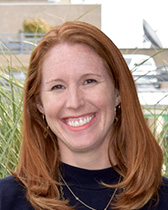
Valerie Sundby
Director of Transfer Education, Washington State Board for Community and Technical Colleges
Valerie Sundby
Director of Transfer Education, Washington State Board for Community and Technical Colleges
Valerie Sundby, Ed.D. serves as the director of transfer education at the Washington State Board for Community and Technical Colleges. She provides leadership for Washington’s 34 community and technical colleges in the areas of transfer and applied baccalaureate degrees and works collaboratively with higher education partners around the state. She has worked in higher education for the past 20 years, including more than ten years as an academic dean. Sundby holds a Doctorate of Education in higher education leadership, a Master’s of Education in educational policy and leadership, and a Bachelor’s of Science in cell and molecular biology, all from the University of Washington.
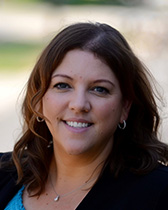
Innovation and Collaboration: Transfer Pathways in Engineering to Address Workforce Gaps
Transfer is a perennially sticky topic, and never more so than in science, technology, engineering, and math (STEM) fields with strict prerequisites and increased curricular complexity. This session will look at two examples of institutions that have prioritized transfer pathways for engineering students to meet workforce needs in their communities through National Science Foundation (NSF) grant work and new programs.
Indira Chatterjee
Interim Dean of Engineering, University of Nevada, Reno
Indira Chatterjee
Interim Dean of Engineering, University of Nevada, Reno
Indira Chatterjee, Ph.D., received her M.S. in physics from Case Western Reserve University, Cleveland, Ohio, and Ph.D. in electrical engineering from the University of Utah, Salt Lake City, Utah. Chatterjee is currently interim dean of engineering and professor of electrical and biomedical engineering at the University of Nevada, Reno. She has won many awards including Foundation Professor, Tibbitts University Distinguished Teacher Award, the Hoeper Award for Excellence in Teaching and Advising, Society of Women Engineers Region A Service Award, the IEEE Student Section Award for Excellence in Teaching, the Nevada Women’s Fund “Women of Achievement” award, and the Silver Compass Award for Extraordinary Commitment to Students.
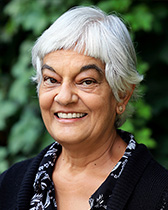
Anne Flesher
Dean of the Computer, Mathematical, and Physical Sciences Division, Truckee Meadows Community College
Anne Flesher
Dean of the Computer, Mathematical, and Physical Sciences Division, Truckee Meadows Community College
Anne Flesher is the dean of the computer, mathematical, and physical sciences division at Truckee Meadows Community College (TMCC), a minority-serving institution in Reno, Nevada, overseeing the engineering program. She is principal investigator for the NSF RED grant, Engineering Pathways for Community, Access, and Transfer (EPACT), enhancing engineering pathways and fostering faculty collaboration across northern Nevada. A STEM education reform advocate, she represents TMCC on the Nevada Alliance for Complete College America and founded TMCC’s Society of Women Engineers, earning SWE’s 2023 STEM Outstanding Community Leader Award. Flesher received her B.A. in mathematics from the University of Virginia, and her master’s in mathematics from the University of Colorado, Boulder.
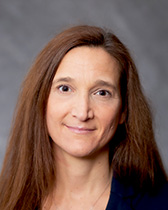
Marjaneh Gilpatrick
Associate Vice President of Statewide Initiatives and Alliances, Northern Arizona University
Marjaneh Gilpatrick
Associate Vice President of Statewide Initiatives and Alliances, Northern Arizona University
Marjaneh Gilpatrick, Ed.D., has served as associate vice president of statewide initiatives and alliances at Northern Arizona University since 2023. While collaborating with community colleges, she leads strategic market-driven academic programs across multiple regions. Previously, she served as College of Education’s associate dean at Grand Canyon University for 14 years, and has also been a professor in educational leadership. Furthermore, she is the vice president of the board of directors for the Arizona Educational Foundation. Gilpatrick received her B.S. in elementary education from Louisiana State University, an M.A in education from San Diego State University, and an Ed.D. in educational leadership from Argosy University.
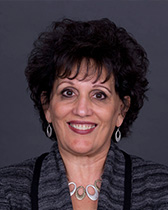
Measuring Postsecondary Value Across Transfer Pathways
Existing definitions of postsecondary value focus on financial metrics of ‘return of investment’ (ROI) for students, establishing ratios of program cost or loan debt against median earnings of graduates. However, these metrics have significant limitations, particularly for students in transfer pathways. This session examines the potential of inter-agency partnerships to enhance the understanding of ROI across transfer, and help students make informed decisions about transfer pathways.
Julie Garver
Director of Policy and Academic Affairs, Council of Presidents
Julie Garver
Director of Policy and Academic Affairs, Council of Presidents
Since 2015, Dr. Julie Garver has been the director of policy and academic affairs for the Council of Presidents. She collaborates on higher education policy at the state and national levels to meet the needs of Washington’s public baccalaureate institutions. Previously, Garver served as the director of government relations with The Evergreen State College for eight years and worked with the Oregon Community College Association for five years. Garver earned a B.A. in international political economy from the University of Puget Sound, a M.A. in international affairs from American University, and a Ph.D. in higher education policy from Oregon State University.
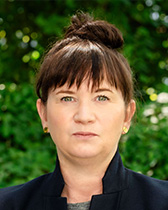
Summer Kennesson
Policy Research Director , Washington State Board for Community and Technical Colleges
Summer Kennesson
Policy Research Director , Washington State Board for Community and Technical Colleges
Summer Kenesson has served as policy research director for the Washington State Board for Community and Technical Colleges (SBCTC) since 2021. She provides policy and research support to Washington’s 34 community and technical colleges and collaborates with state and federal agencies to inform policy for the quality of education across the sector. Previously, she served in leadership roles in the SBCTC system for 13 years, and in higher education policy and research in the United Kingdom. Kenesson holds a B.A. in art history from the University of Wisconsin-Madison, a postgraduate certificate in further education from the University of Portsmouth (UK), and an MBA from the University of Plymouth (UK).
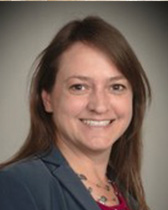
Co-Investing in Infrastructure: The New Normal in Community Investment
This panel explores two examples of institutions partnering to develop innovative campuses to satisfy local educational and workforce needs. A representative from Colorado State University Pueblo will share their experience developing a new satellite campus to support workforce development in healthcare settings, and representatives from Salt Lake Community College and University of Utah will discuss a unique infrastructure partnership that serves transfer students.
Taunya Dressler
Director of Campus and Site Services, Salt Lake Community College
Taunya Dressler
Director of Campus and Site Services, Salt Lake Community College
Taunya Dressler, Ed.D., has been director of campus and site services and assistant dean of students at Salt Lake Community College since 2022, leading efforts to expand access to higher education through a partnership with the state’s flagship university. Previously, she spent 12 years as assistant dean for undergraduate affairs in the College of Humanities at the University of Utah, and held educational leadership roles in the Philippines, Morocco, and Italy. She holds a B.A. in English teaching, an Ed.D. in higher education administration from the University of Utah, and an M.A.T.E.S.O.L. from the School for International Training.
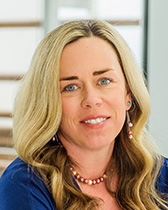
Jason Taylor
Assistant Dean for Transfer Student Success, University of Utah
Jason Taylor
Assistant Dean for Transfer Student Success, University of Utah
Jason L. Taylor, Ph.D., is an assistant dean for transfer student success in undergraduate studies and an associate professor in the department of educational leadership and policy at the University of Utah. In his administrative role, he provides leadership for the university’s efforts to support the success of all transfer students. He received his Ph.D. in higher education from the University of Illinois at Urbana-Champaign with a research specialization in evaluation methods and concentration in public policy.
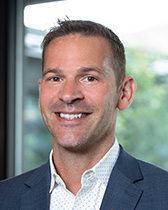
Jacob Walter
Associate Director of Statewide Initiatives and Outreach, Colorado State University Pueblo
Jacob Walter
Associate Director of Statewide Initiatives and Outreach, Colorado State University Pueblo
Jacob Walter was raised on a cattle ranch in southern Colorado where he gained a passion for agriculture and education. Those passions led him to Colorado State University where he majored in agricultural education and completed his honors program thesis on how to initiate conversations about mental health. He is currently completing his Master of Science in Organizational Leadership with a focus on strategic change innovation. Walter now serves the people of Colorado as he works to create accessible education opportunities through Colorado State University Pueblo in his role as associate director of statewide initiatives and outreach.
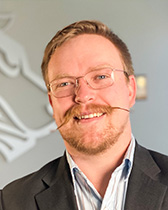
Examining Institutional Financial Viability and Program review for an Uncertain Future
In an era of shifting demographics and financial pressures, strategic finance is no longer just the concern of chief financial officers—it’s a conversation for leaders across the institution from student affairs to facilities and planning to academic affairs. The upcoming demographic changes and economic outlook will impact institutions differently; some will be more vulnerable than others. As state boards consider how to address these challenges, their responses should be strategic in nature, informed by data and evidence, and foresighted, rather than a product of triage not sufficiently based on effective planning. The South Dakota Board of Regents recently partnered with NCHEMS to develop a tool for examining its institutions’ future based on changing assumptions about possible conditions, and to offer analytical approaches for a strategic review of programs. This session will highlight that work and offer lessons learned.
Pam Carriveau
Provost and Vice President for Academic Affairs, Black Hills State University
Pam Carriveau
Provost and Vice President for Academic Affairs, Black Hills State University
Pamela Carriveau is the associate vice president for academic programming for the South Dakota Board of Regents (SDBOR). She manages academic program development, facilitates collaborative efforts between student success and academics across the regental system, and provides leadership in implementing high-impact educational practices. Prior to starting with the SDBOR in August 2022, she was the interim provost at Black Hills State University (BHSU). Previously, Carriveau served as the assistant provost, the director of program review and assessment, and as an associate professor of political science at BHSU. She received her B.A. in political science from the University of Wyoming and her M.A. and Ph.D. in political science from Purdue University.
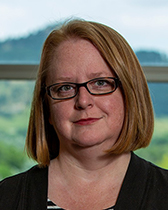
Heather Forney
Vice President of Finance and Administration, South Dakota Board of Regents
Heather Forney
Vice President of Finance and Administration, South Dakota Board of Regents
Heather Forney is the vice president of finance and administration for the South Dakota Board of Regents. As system vice president, Forney provides policy direction, support, and oversight of a $960 million budget, serving 36,000 students and more than 5,000 employees at six public universities. She has worked in public accounting as an adjunct instructor of economics and accounting, and as the vice president of finance at the South Dakota School of Mines & Technology. Forney holds master’s and bachelor’s degrees in accounting, both from the University of South Dakota.
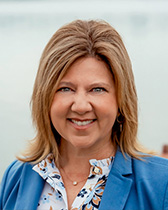
Brian Prescott
President, NCHEMS
Brian Prescott
President, NCHEMS
Brian Prescott, Ph.D., is president at NCHEMS, where he sets the organization’s strategic direction and leads a team of accomplished and committed policy experts, information analysts, and creative thinkers working to improve how postsecondary education serves the nation’s needs. He also leads and supports projects on behalf of states, state agencies and systems, and institutions related to state strategic planning, postsecondary finance and affordability, governance and organization, demographics, and student success and workforce outcomes. Before joining NCHEMS in 2016, he served as director of policy research at the Western Interstate Commission for Higher Education. He is a current board member of the National Student Clearinghouse Research Center and a past board member of the National Association of College Admission Counseling. He has degrees from the University of Virginia, the University of Iowa, and the College of William and Mary.
